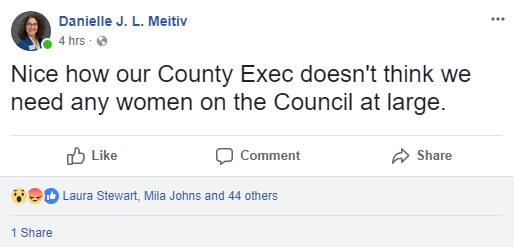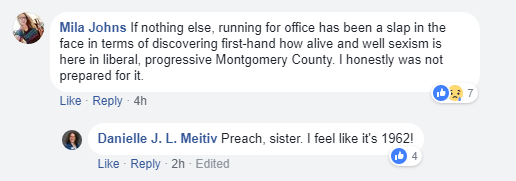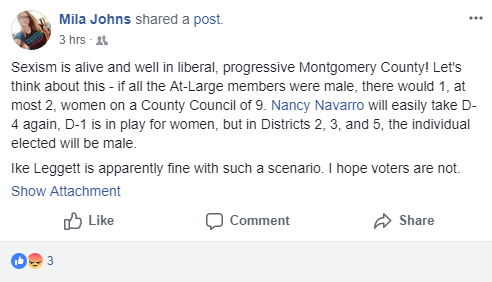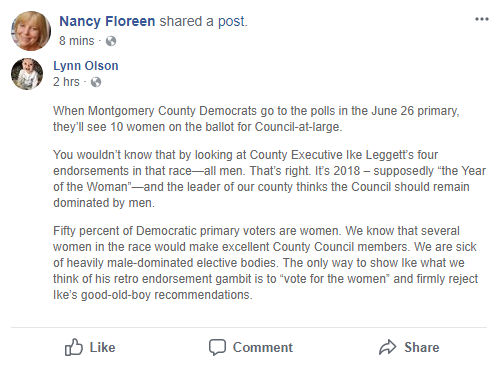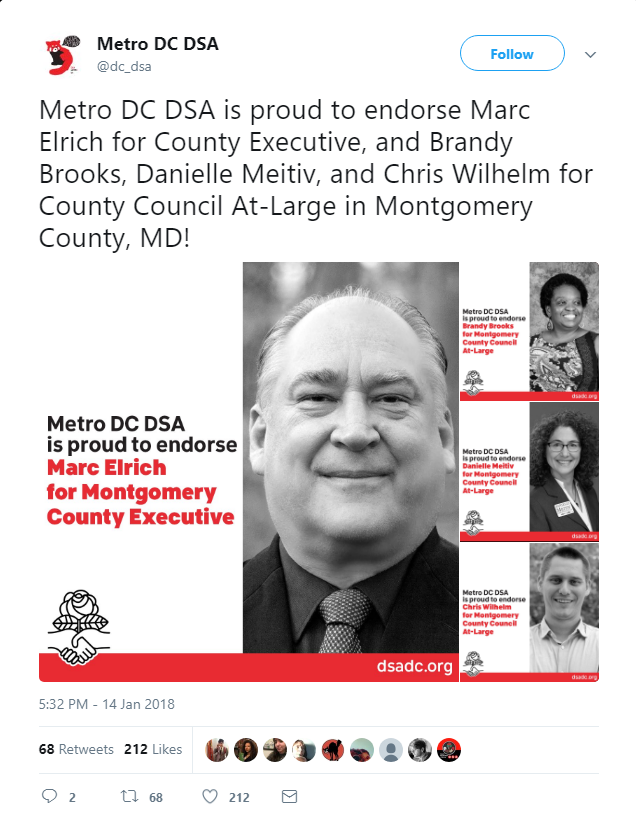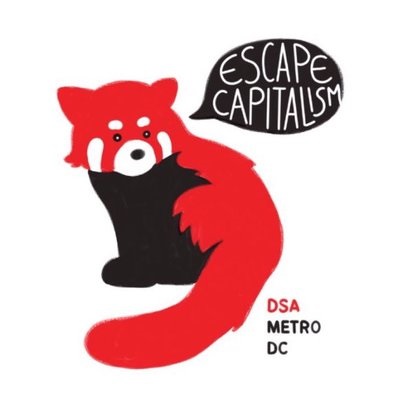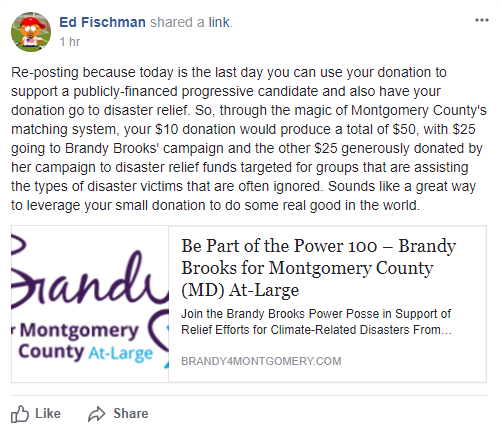By Adam Pagnucco.
County Executive Ike Leggett’s decision to endorse four men in the Council At-Large race – incumbent Hans Riemer, Gabe Albornoz, Hoan Dang and Will Jawando – has provoked public accusations of sexism from two women who are running for office.
Council At-Large candidate Danielle Meitiv kicked things off on Facebook minutes after Leggett’s endorsement of Jawando was announced, writing, “Nice how our County Exec doesn’t think we need any women on the Council at large.”
District 18 Delegate candidate Mila Johns followed up, directly accusing Leggett of “sexism, pure and simple,” and eventually shared Meitiv’s post on her own page.
Council Member Nancy Floreen also weighed in on this, although somewhat indirectly.
The sentiment expressed by Meitiv and Johns is shared by other women running for office. Several of them blasted Leggett to your author in scathing terms but would not go on the record. That makes sense – most politicians want to avoid public disputes with a sitting County Executive at election time. One candidate who was willing to comment on the record was Brandy Brooks, who is running for Council At-Large and co-wrote an essay about gender parity in politics with Meitiv. Brooks told us:
For many, 2018 could be the year for women, people of color, and working people, but not if we aren’t actively changing our political system both internally and externally. Maryland has one of the worst records in the country on gender parity: we rank 38th on the gender parity index with a score of 12.1 (down from 21.2 in 2014) with few women in federal, state, or local office. To be clear, the four men who have been endorsed by the county executive are qualified candidates — that is not the question. However, not endorsing a single woman running at-large sends the wrong message about how our political and elected leaders view gender parity. Some will argue that more of the women running should have sought the endorsement. Unfortunately, this view continues to fault women instead of asking why our leaders aren’t being intentional to seek women to endorse as well. It continues a pattern that leaves many on the margins. Thankfully, there are many strong women candidates running for office in 2018 to change this status quo, and I’m excited to be one of them.
If Leggett’s choices win, it’s possible that the council might have just one female member in its next term: District 4 incumbent Nancy Navarro. Since its current structure was established in 1990, the nine-member council has never had fewer than two female members and has sometimes had three or more. Additionally, the issue of how women are treated in politics has erupted in Annapolis as the General Assembly grappled about how to deal with harassment in its most recent session. One at-large candidate (Delegate Charles Barkley) has even been accused of inappropriate behavior with women.
Riemer, Albornoz, Dang and Jawando are not unusual choices for Leggett. The Executive has had a cordial relationship with Riemer during their time in office together. Albornoz is widely regarded as one of his best department directors. Dang and Jawando are solid candidates and both would bring assets to the council if elected. But surely Leggett and his team should have expected pushback on this in the wake of his criticism of the District 39 state legislators for accepting Lesley Lopez on their slate, a dispute in which gender was raised as an issue.
In Leggett’s defense, he has filled his administration with strong and competent women, including but not limited to Department of Permitting Services Director Diane Schwartz-Jones, Office of Management and Budget Director Jennifer Hughes, Health and Human Services Director Uma Ahluwalia, Assistant Chief Administrative Officer Lily Qi, former libraries director Parker Hamilton and Special Assistant Joy Nurmi. (Some of these ladies have left multiple boot prints on your author’s rear end!) Leggett’s wife, Catherine, is an admired player in county politics who chairs the Executive’s Ball and raises money for the arts. We are sure that Leggett’s MANY female supporters will step up in his defense should they deem this criticism worthy of response.
So who’s right? That’s for you, the readers, to decide.

